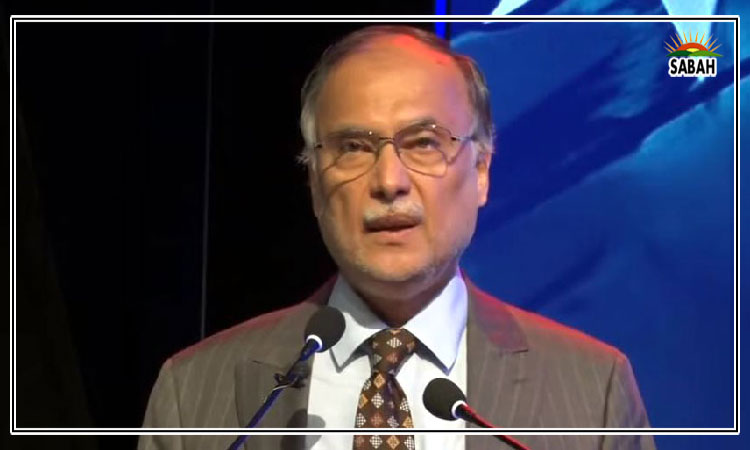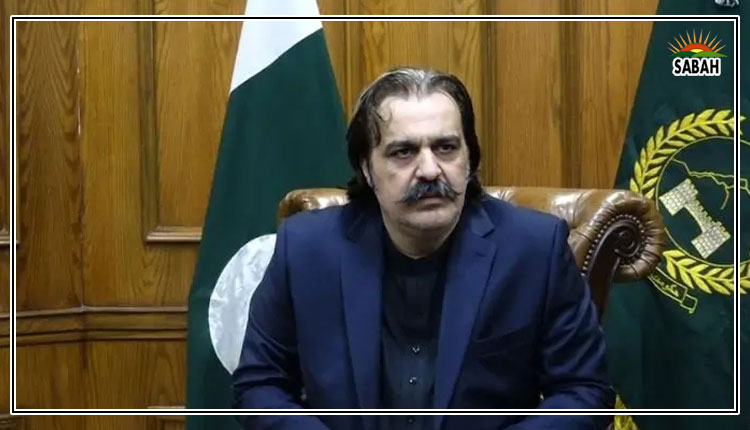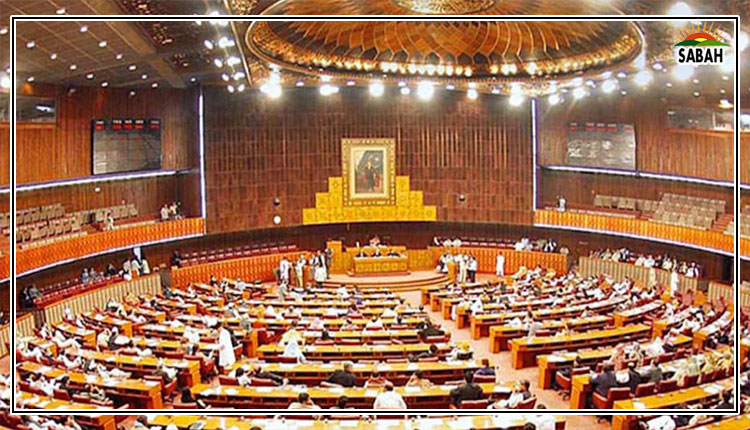National Assembly passes Finance Bill 2023 with outlay of Rs14.48tr with majority vote
ISLAMABAD, June 25 (SABAH): The National Assembly on Sunday passed the Finance Bill 2023 with certain amendments to give effect to the financial proposals of the federal government for the year beginning on the 1st July, 2023.
Having a total outlay of 14.48 trillion rupees, the budget 2023-24 focuses on economic stability, sustainable and inclusive growth as well as curbing inflationary pressures.
The budget envisages the federal Public Sector Development Programme (PSDP) worth 1150 billion rupees, which is the highest ever in terms of its size, reflecting the government’s commitment to improve people’s standard of living.
The economic growth of 3.5 has been targeted for the next fiscal year. The revenue collection target of FBR has been revised up to 9.415 trillion rupees.
The budget encompasses special initiatives for the uplift of agriculture, industries, and IT sectors, besides, relief for various segments of society including the salaried class. Agriculture credit limit has been enhanced from 1800 billion rupees to 2,250 billion rupees. 30 billion rupees have been earmarked for shifting 50 thousand agriculture tube wells to solar energy. All taxes and duties on import of quality seeds have been abolished.
Under the budget, the IT and IT-enabled service providers have been allowed to import software and hardware equal to one percent of their exports without any tax. The limit of these imports will be fifty thousand dollars annually.
Ten billion rupees have been earmarked for the Prime Minister’s Youth Business and Agriculture Loans scheme.
The budget also includes 35 percent ad-hoc relief allowance for the employees of grade 1 to 16, while 30 percent ad hoc relief for the employees of scale 17 and above. The pension has been increased by 17.50 percent. The minimum wage has been increased to 32000 rupees from 25000 rupees.
Besides, 1804 billion rupees have been set aside for defence affairs and services.
According to media reports, Foreign Minister Bilawal Bhutto Zardari, his father Asif Ali Zardari and the Leader of the Opposition, Raja Riaz Ahmed Khan, were also absent.
At the outset of the session, Finance Minister Senator Mohammad Ishaq Dar had defended the government’s move to implement various reforms in the pensions scheme.
“If someone has a job on a contract then he will have to choose between the two pensions. This should’ve been corrected a long time ago,” he said. “It is a matter of principle that you have the right to one pension.”
He said that when a pensioner died, their widowed spouse would receive the stipend. But once the spouse died, their dependents would get the pension for 10 years after which it will end, he said.
“Our pension bill went to Rs800bn in this budget. It is a huge amount. It used to be half a few years ago,” Ishaq Dar said, adding that these reforms were the need of the time.
During the session, Jamaat-e-Islami lawmaker Maulana Abdul Akbar Chitrali moved a resolution to send the budget to the Council of Islamic Ideology (CII). He contended that the budget was based on a “system of interest”, adding that by accepting it the government was going against the directives of the Federal Shariat Court (FSC).
“Not taking the CII’s opinion on the finance bill will be a violation of the FSC’s decision,” he said.
Minister for Economic Affairs Sardar Ayaz Sadiq opposed the move, saying that parliamentarians had to go for Hajj and called for wrapping up budget proceedings. Speaker National Assembly Raja Pervaiz Ashraf put the resolution up for vote after which the resolution was rejected.
The finance minister then presented the budget for the new fiscal year with amendments for clause by clause approval. Maulana Abdul Akbar Chitrali’s proposed amendment was also accepted, under which the chairman of standing committees would be allowed cars up to 1,200cc.












